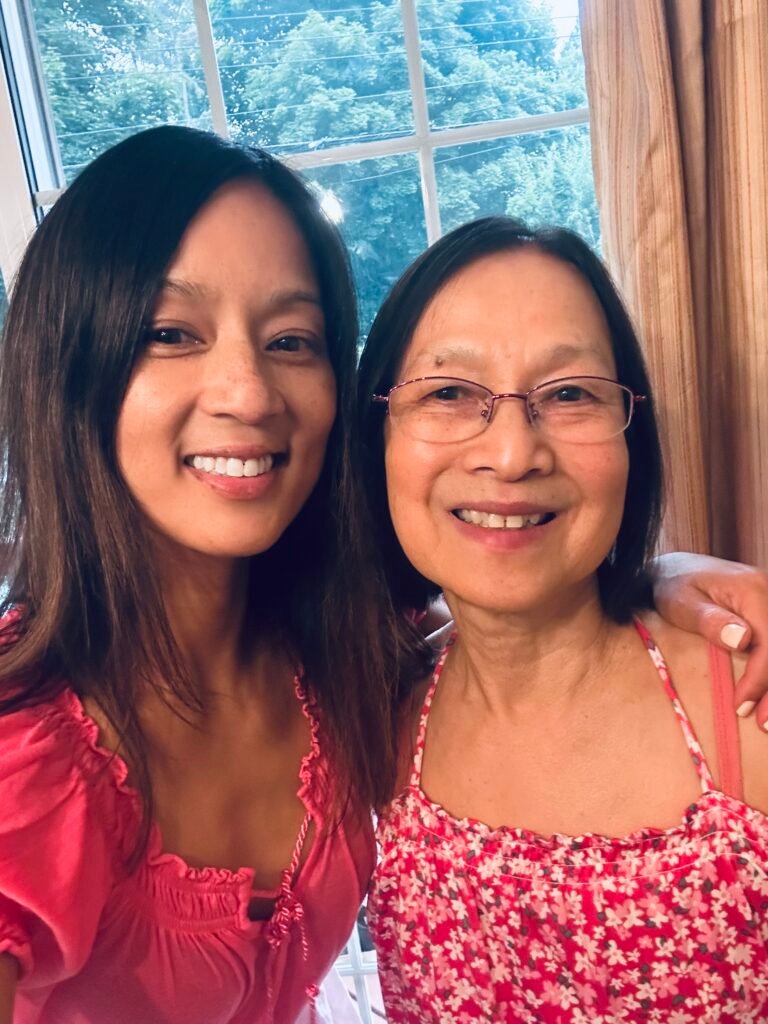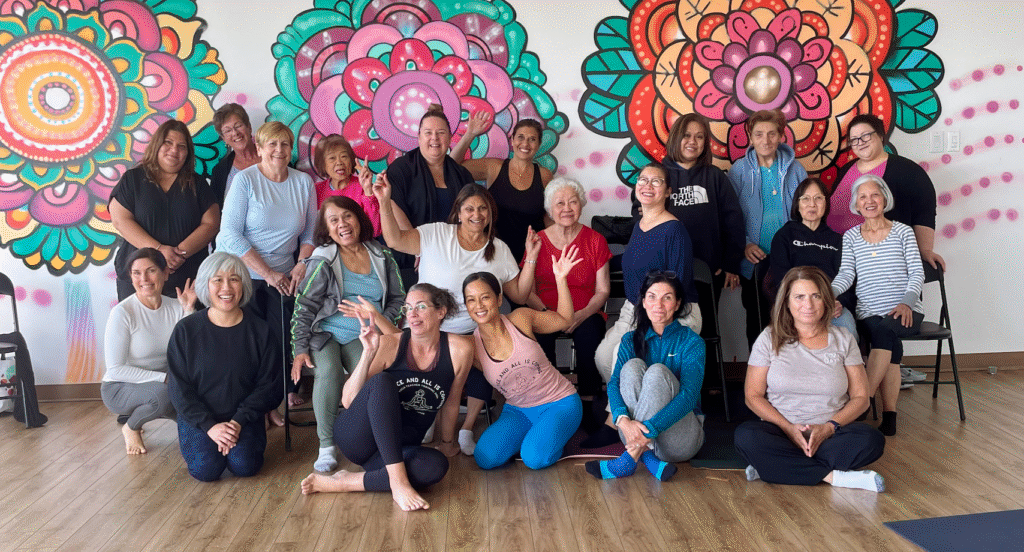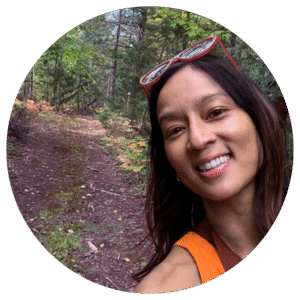Why I Created Chair Yoga Connections
The Lesson My Mom Taught Me
Caring for my mom taught me that connection is medicine — for the body, the mind, and the heart.
When my mother was diagnosed with dementia, I didn’t understand at first what was happening — why she was acting so odd, why our relationship felt so strained. Over time, through frustration, education and ultimately compassion, I learned that what she needed most wasn’t fixing. She needed support, understanding and the feeling of always being connected to people who cared about her.
This realization became the seed for Chair Yoga Connections — a program designed to bring movement, community, and support into the lives of those who need it most.
The Signs
Looking back, the signs were there long before the diagnosis — the routines she clung to, her anxiety, her growing rigidity, and the tension that built between us. For years, I was frustrated, not understanding why she was so inflexible and set in her ways.
Then the pandemic hit, and everything became worse. My mom isolated herself completely. She refused to let anyone into her home, consumed by fear and worry. Only near the end of the pandemic did the truth start to surface. My younger brother got married and moved out, and only then did we realize how dependent my mom had become on him. When you’re too close to something, you don’t always see it clearly.

A Difficult Discovery
When my sister and I were finally allowed into her home, we were shocked. The house was overflowing with clutter – piles and piles of recycling, old papers, clothes, and what I felt was junk, everywhere. I was so frustrated.
I could not understand how this all accumulated. My mom used to work in accounting, she was so precise and detail oriented. How did this happen?
It took me nearly a year to organize her home. Bag after bag, endless trips to Village des Valeurs—so many that it became a verb in our family: “Let’s Village it!” Every item I tried to remove became a battle. My mom was so upset with me. She resented that I was throwing out personal belongings she had held onto for years. I, on the other hand, saw it as protecting her, making sure her home wasn’t a fire hazard, ensuring she wouldn’t trip over things, keeping her safe.
We clashed constantly. It was exhausting and unpleasant for both of us, but it was also a turning point, a moment where I began to understand the depth of her struggle and the challenges that lay ahead.
The Moment Everything Changed
Over time, I began to notice more unusual behavior. My mom wore mismatched clothes, shirts inside out or backwards, coats in the middle of summer, often layered one on top of another. Our relationship began to shift. She would ask me repeatedly if she was dressed “right” or if something needed to change. On more than one occasion, she told me she felt like I had become her mother.
The reality hit me hard during a shopping trip for a dress for my brother’s wedding. In the fitting room, I froze. My mom looked skeletal—perhaps only 80 pounds—and all those layers had hidden just how frail she had become. I thought she was terribly sick. That moment broke me. It was the first time I truly realized that something was seriously, profoundly wrong.
The Journey Toward Understanding
What followed was months of advocacy and care. Finding a doctor in Quebec was a challenge in itself, that’s a story for another day, but after many tests, we learned my mom was malnourished. She wasn’t eating properly, forgetting how to use her oven, relying on neighbors to bring her food. My mom now needed support for the basics of life.
It was a very difficult time, emotionally and physically draining. Between my own family, my business, and my mom’s care, I felt pulled in every direction. I didn’t yet understand that dementia was the cause. I thought she was simply being “difficult.”
But knowledge brings compassion. Once I learned about dementia, how it affects the brain, memory, and reasoning, everything changed. I began to forgive her, and myself, for the years of frustration. I learned to let go of the resentment and meet her where she is now.
One Day at a Time
Today we take it one day at a time. My mom has a wonderful caregiver who has become a very important part of our lives. I needed help so badly, just to be able to breathe. It’s beautiful to see her connect and laugh again, to see her socialize without the emotional weight that can come with our mother-daughter dynamic.
Despite her memory loss, my mom remains physically strong. She has always been active, and that hasn’t changed. She can still dance—she absolutely loves salsa—walk quickly, bend, and twist, even after a hip replacement. My focus now is on keeping both her body and spirit vibrant through movement and connection. Movement is medicine, not just for the body, but for the brain.
The Birth of Chair Yoga Connections
That’s how Chair Yoga Connections came to life. I wanted to create a safe and inclusive space for people like my mom, and for anyone who might feel limited by age, injury, or illness, to move, breathe, and connect. But it’s not just about movement, it’s about bringing people together, fostering socialization, and building a true sense of community. Our space is warm, welcoming, and full of charm, where everyone knows your name and feels at home.
At our open house, the magic of this became clear. People came with their parents, caregivers, and loved ones, sharing in the experience together. Participants of different ages and abilities practiced side by side, some recovering from surgeries, living with pacemakers, managing heart conditions, or simply returning to movement after time away. Each person brought their own story, yet everyone left with something in common: a sense of connection, belonging, and shared experience.
Caring for Others and Ourselves
Caring for an aging parent is not easy. Many of us are part of the sandwich generation, caring for both our children and our parents. The weight can feel heavy. Without grounding and self-care, it’s easy to lose your center. Yoga has been my anchor for more than 25 years. It’s what helps me stay steady amidst all of life’s change. Through Chair Yoga Connections, we hope to share that same sense of grounding, for our parents, our loved ones, and for anyone in need of connection. Because connection truly keeps us alive, inside and out.
Join us for Chair Yoga Connections starting October 17th

We are very proud to announce our very first 8-week session of Chair Yoga Connections session beginning October 17 at Energie EnCorps taught by Sylvie Ouellet and Sandra Miron. Both trained yoga teachers trained in-house at Energie EnCorps who have completed the seniors adapted chair yoga program.
If you or someone you care for could benefit from a gentle, inclusive, and uplifting movement program, we’d love to welcome you. Whether you’re recovering from an injury, supporting a loved one, or simply looking for a space to move, breathe, and connect, this program was created with you in mind.
Classes are small, supportive, and led by experienced yoga teachers trained to meet you exactly where you are.
Got questions or comments?

Rozel Gonzales
Rozel Gonzales is the founder of Energie EnCorps, a Holistic Health and Wellness Center located in Montreal’s West Island. A devoted Ashtanga yoga practitioner, teacher, massage therapist, entrepreneur, and mother of three, Rozel left a successful corporate career in 2014 to follow her passion for wellness. Teaching since 1997 and deeply rooted in the Ashtanga tradition, she now leads the Energie EnCorps Yoga Teacher Training program, inspiring the next generation of instructors.
